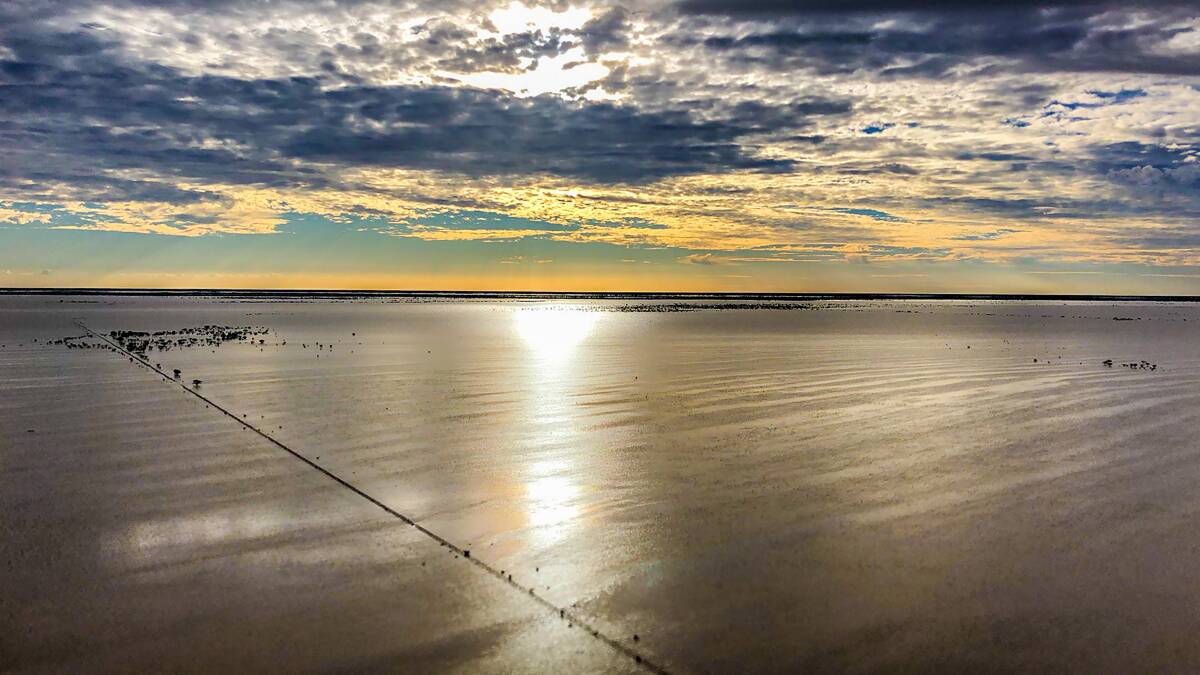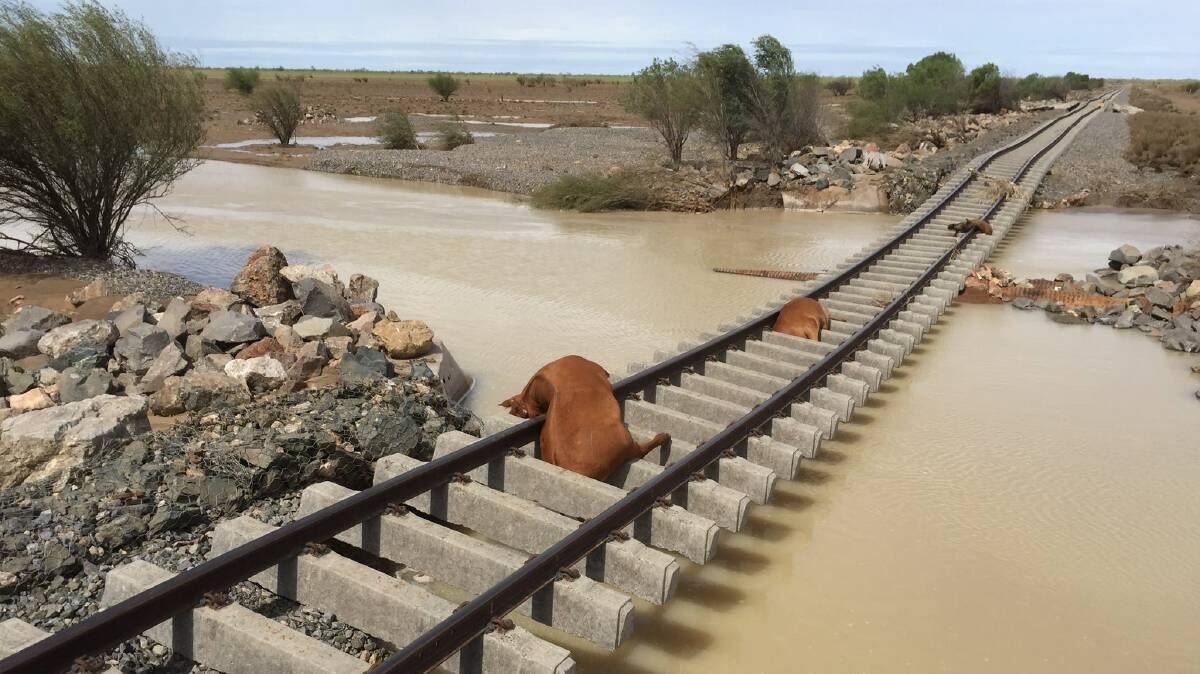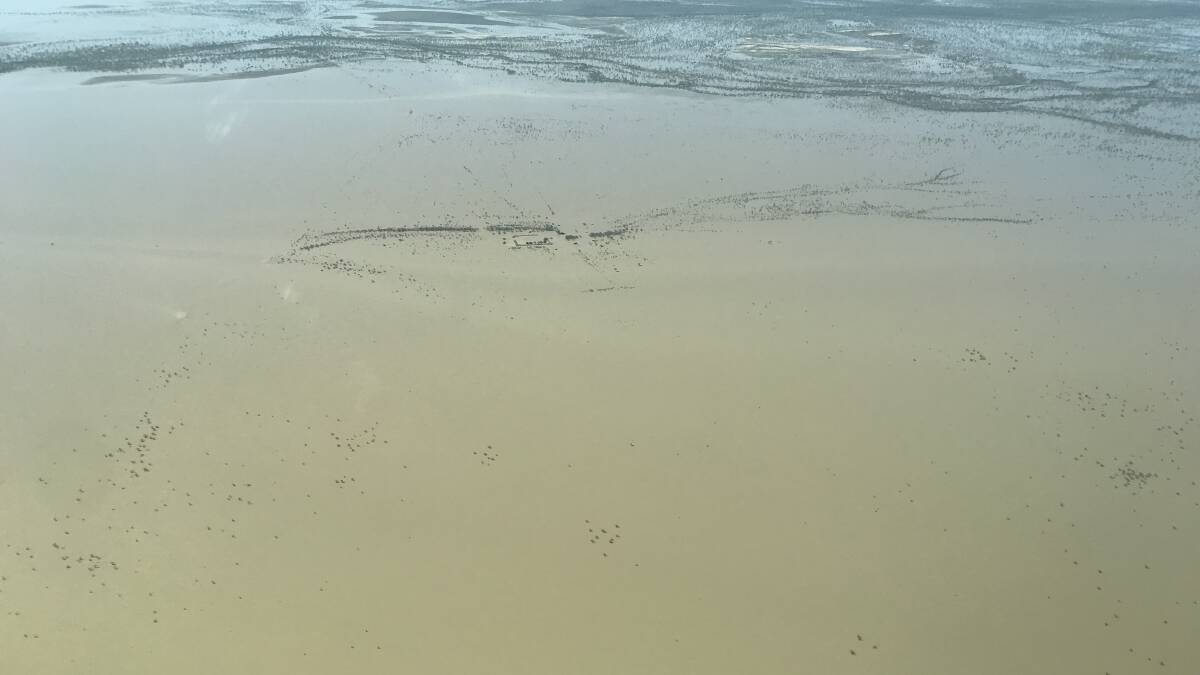
One group fully exposed to the absolute horror that has unfolded in Australia’s worst livestock disaster are the helicopter pilots and small plane operators that have been working from dawn to dusk since the rain stopped in Queensland’s north west.
They are describing the scarified region as one big paddock from Hughenden to Karumba and a place where the stench of dead animals is growing as the temperature climbs back towards 40 degrees.
Dan Gresham, one of the small army of helicopter pilots working unceasingly over the inland sea, said he was unsure how long the rescue effort would need to continue.
Read more: AACo confirms big flood losses
“We got a couple of hours in Thursday morning, just checking people and cutting fences – we were still scrambling to make sure people were safe then,” he said.
“Since Friday we’ve been going out at daylight and stopping at dark.
“It just depends on how much hay we still need to put out, as to how long we’ll be going for.”
The scenes Dan and the others are seeing over and over are ones no-one should see, of dead cattle huddled together in mobs, where they had tried to stay warm as the rain and wind pounded them for days.
“These are the cattle of our customers, our friends, the people we deal with all year,” he said.

There are eight chopper pilots with the Cloncurry Mustering Company alone hard at work, three of them deployed further north helping properties try and clear stock out of the way of the oncoming flood.
In an operation of military precision they have slinged 44 gallon drums of avgas to strategic refuelling locations and the pilots often stay the night at the last place they’ve been helping.
It saves them using precious fuel to fly back to base and it’s in the ruined landscape where they are needed.
At one point on Saturday, Dan flew 80 kilometres from the eastern side of the Saxby River to Sedan Dip without seeing land.
Read more: Outpouring of support
Fences, railway lines and tanks are jumbled across the flood, and the heads of windmills are all that could be seen in some places.
“We can’t believe the amount of kangaroos that have died,” Dan said.
“Even the budgerigars, when we’re putting hay out, they fly in and get the seed.
“Even with us hovering they try and stay there – they’re starving too.”
Amongst the horror, Dan related a good news story they’d helped with, when the water levels in the Saxby and Flinders Rivers were still fluctuating up and down.
A mob of horses had been standing in water for a few days and were getting fed hay in lick tubs, but the rising river meant they had to be walked 6km through water up to their bellies to safety.
As well as the chopper’s urging, a man on a Jetski pushed the tail along.
Read more: Fodder drops continue
“But that couldn’t happen everywhere,” Dan said. “A lot of stock, you’d kill them if you moved them – you have to feed them where they stand.”
One of those who was able to join the chopper pilots once the weather cleared in Townsville was valuer Roger Hill, no stranger to the people who’ve been hit with disaster.

Describing his contribution as background support to get people back on their feet, he contacted the four mayors along the Flinders line to let them know he and his plane were ready to help.
As a result, he couriered milk to Julia Creek, CV joints and axles for buggies broken in the mud, much-needed veterinary supplies, and even nappies.
“I didn’t realise the range that nappies came in – I had to ring the mother to make sure I got the right item,” he said.
Like everyone, he was staggered to see the reality of the storm.
“A picture on a phone can’t do justice to the magnitude of it,” he said.
“The thing that gets you is the aimless wandering tracks of cattle looking to survive.
“All kudos must go to the local disaster management groups, the helicopter pilots, the mayors leading their communities through this.
“I just wonder where people are going to get a dollar from this year.”
Dan said people hadn’t had time to reflect on that yet.
“People are very worried about the future but their concerns at the moment are about keeping the cattle they’ve got left alive.”
Related: Big Country postponed again


